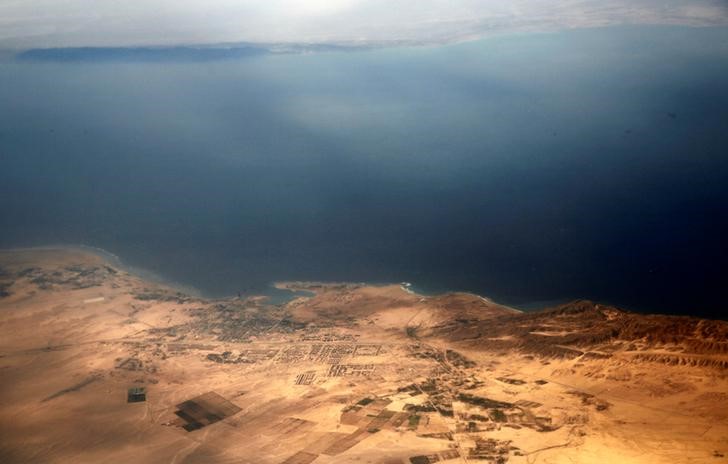CAIRO (Reuters) - An Egyptian court rejected on Monday a government plan to transfer two uninhabited Red Sea islands to Saudi Arabia, in a final ruling that prompted cheers in the courtroom but could deepen tensions with the country's erstwhile financial backer.
Egypt's government announced during a visit by the Saudi king in April a maritime demarcation accord that would see it cede control of Tiran and Sanafir.
The deal prompted protests from Egyptians who said they had been taught in school that the islands belonged to them.
It has become a source of tension between Egypt and Saudi Arabia, which showered its ally with tens of billions of dollars in aid in recent years but suspended petroleum supplies in September amid growing differences.
Two leading lawyers challenged the legality of the accord at the Higher Administrative Court, a powerful judicial body which deals with cases involving the government and public entities.
In June, the court annulled the agreement, saying Egyptian sovereignty over the islands could not be given up.
The Egyptian government received a boost last month when the court upheld its appeal but it lost the final appeal on Monday.
Celebrations erupted as the judge read out the verdict confirming Egyptian sovereignty over Tiran and Sanafir and saying that the government had failed to provide evidence that the islands belonged to Saudi Arabia.
Outside the courthouse, hundreds of people waving Egyptian flags chanted "Egyptian, Egyptian" and "Bread, Freedom, the islands are Egyptian".
Khaled Ali and Malek Adly, the two human rights lawyers who led the legal challenge to the government's plan, were carried out of the courtroom by jubilant supporters.
"This verdict is a victory for Egypt," Adly said.
There was no immediate response from the government.
Saudi and Egyptian officials had argued that the islands belonged to Saudi Arabia and were only under Egyptian control because Riyadh asked Cairo in 1950 to protect them.

But the lawyers who opposed the accord said Egypt's sovereignty over the islands dated back to a treaty in 1906, before Saudi Arabia was founded.